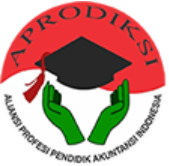Effectiveness Of Tgt And Stad Models In Enhancing Motivation And Accounting Learning Outcomes
Efektivitas Model Tgt Dan Stad Dalam Meningkatkan Motivasi Dan Hasil Belajar Akuntansi
DOI:
https://doi.org/10.21831/jpai.v23i01.83964Keywords:
Effectiveness of Learning Models, TGT, STAD, AccountingAbstract
This study examines the differences in effectiveness between the Teams Games Tournament (TGT) and Student Teams Achievement Divisions (STAD) learning models in enhancing students' learning motivation and accounting learning outcomes. A quasi-experimental approach with a pretest-post-test control group design was employed, involving experimental and control classes. The population in this study consisted of 250 tenth-grade accounting students from SMKN 1 Bantul and SMK YPKK 2 Sleman. The sample used was 126 students, comprising two classes from each school. A random sampling technique was used to determine the experimental and control classes. Data analysis included descriptive statistical tests, N-Gain score tests, and independent sample t-tests. The findings reveal significant differences in effectiveness between the TGT and STAD models. In terms of learning motivation, the N-Gain score for the TGT model at SMKN 1 Bantul (0.576) was higher than that of the STAD model (0.482), and a similar pattern was observed at SMK YPKK 2 Sleman (0.580 > 0.471). Regarding learning outcomes, the TGT model also outperformed the STAD model, with an N-Gain score of 0.766 compared to 0.621 at SMKN 1 Bantul, and 0.713 compared to 0.599 at SMK YPKK 2 Sleman. These results indicate that the TGT model is more effective in increasing both students’ motivation and accounting learning outcomes compared to the STAD model. The study suggests that teachers should consider implementing the TGT model in accounting instruction, as it fosters higher engagement and better academic performance.
References
Andriani, Rezky, Rahman, U., Nur, F., & Suharti. (2021). Hasil Belajar Matematika Siswa Menggunakan Model Pembelajaran Kooperatif. Jurnal Pembelajaran Matematika Inovatif, 4(1), 9–16. https://doi.org/10.22460/jpmi.v4i1.9-16
Andriani, Rike, & Rasto, R. (2019). Motivasi belajar sebagai determinan hasil belajar siswa. Jurnal Pendidikan Manajemen Perkantoran, 4(1), 80. https://doi.org/10.17509/jpm.v4i1.14958
Arianta, I. G. N., Warpala, I. W. S., & Sudarma, I. K. (2024). Pengaruh Model Pembelajaran Project Based Learning Terhadap Motivasi dan Hasil Belajar Informatika Program Studi Teknologi Pendidikan. 13(1), 55–67.
Artzt, A. F., & Newman, C. M. (1990). Implementing the Standards: Cooperative Learning. Mathematics Teacher : Learning Publications.
Dywan, A. A., Airlanda, G. S., Kristen, U., Wacana, S., & Tengah, J. (2020). Efektivitas Model Pembelajaran Project Based Learning Berbasis Stem Dan Tidak Berbasis Stem Terhadap Keterampilan Berpikir Kritis Siswa. 4(2), 344–354.
Fadilah, A. A., Wildan, P. F. M., Ningrum3, L. N., & Azzahra, A. (2025). Pengaruh Model Pembelajaran Project Based Learning (Pjbl) Terhadap Peningkatan Motivasi Dan Hasil Belajar Siswa. 11(11). https://doi.org/10.9644/sindoro.v3i9.252
Gunawan, Kustiani, L., & Hariani, L. S. (2018). Faktor-Faktor yang Mempengaruhi Hasil Belajar Siswa. Jurnal Penelitian Dan Pendidikan IPS, 12(1), 14–22. https://doi.org/10.23887/mi.v26i2.35688
Juliya, M., & Herlambang, Y. T. (2021). Analisis Problematika Pembelajaran Daring dan Pengaruhnya Terhadap Motivasi Belajar Siswa [The Analysis of Online Learning Problems and Its Influence on Students’ Learning Motivation]. Genta Mulia, XII(1), 281–294.
Kristiyono, A. (2018). Urgensi dan Penerapan Higher Order Thingking Skills. Jurnal Pendidikan Penabur, 31(17), 36–46.
Nabillah, T., & Abadi, A. P. (2020). Faktor Penyebab Rendahnya Hasil Belajar Siswa. Prosiding Sesiomadika, 2(1), 659–663.
Palittin, I. D., Wolo, W., & Purwanty, R. (2019). Hubungan Motivasi Belajar Dengan Hasil Belajar Fisika. MAGISTRA: Jurnal Keguruan Dan Ilmu Pendidikan, 6(2), 101–109. https://doi.org/10.35724/magistra.v6i2.1801
Pranayoga, I. D. P. A., Agustini, K., & Arthana, I. K. R. (2016). Studi Komparatif Model Pembelajaran Kooperatif Numbered Head Together dan Group Investigation Terhadap Hasil Belajar TIK. Karmapati, 5(2). https://doi.org/https://doi.org/10.23887/karmapati.v5i2.8117
Pratama, H. J., & Ghofur, M. A. (2021). Pengaruh Motivasi Belajar dan Lingkungan Belajar Terhadap Hasil Belajar Mata Pelajaran Ekonomi Siswa Saat Pembelajaran Daring. Edukatif: Jurnal Ilmu Pendidikan, 3(4), 1568–1577. https://edukatif.org/index.php/edukatif/article/view/621
Pratiwi, A., Sholehah, R. S., & Syahidah, A. (2021). Belajar Komputer Tanpa Komputer : Solusi Pemerataan Pendidikan di Daerah 3T. 01(01), 1–5.
Rompegading, A. B., Safitri, M., & Irfandi, R. (2021). Perbandingan Hasil Belajar Siswa antara Model Pembelajaran Kooperatif Tipe Team Games Tournament dengan Student Teams Achievement Division. Bioedusains: Jurnal Pendidikan Biologi Dan Sains, 4(2), 205–2011.
Saputra, H. D., Ismet, F., & Andrizal, A. (2018). Pengaruh Motivasi Terhadap Hasil Belajar Siswa SMK. INVOTEK: Jurnal Inovasi Vokasional Dan Teknologi, 18(1), 25–30. https://doi.org/10.24036/invotek.v18i1.168
Silalahi, T. F., & Hutauruk, A. F. (2020). The Application of Cooperative Learning Model during Online Learning in the Pandemic Period. Budapest International Research and Critics Institute (BIRCI-Journal): Humanities and Social Sciences, 3(3), 1683–1691. https://doi.org/10.33258/birci.v3i3.1100
Slavin, R. E. (1980). Cooperative Learning. Review of Educational Research, 50(2), 315–342. https://doi.org/10.3102/00346543050002315
Slavin, R. E. (1995). Cooperative Learning : Theory, Research, and Practice. Boston: Allyn and Bacon.
Downloads
Published
How to Cite
Issue
Section
License
Copyright (c) 2025 Wahyu Lestari

This work is licensed under a Creative Commons Attribution 4.0 International License.
Authors who publish with Jurnal Pendidikan Akuntansi Indonesia journal agree to the following terms:
- Authors retain copyright and grant the Jurnal Pendidikan Akuntansi Indonesia journal right of first publication with the work simultaneously licensed under Creative Commons Attribution License (CC BY 4.0) that allows others to share the work with an acknowledgment of the work's authorship and initial publication in this journal.
- Authors can enter into separate, additional contractual arrangements for the non-exclusive distribution of the published version of the work (e.g., post it to an institutional repository or edit it in a book), with an acknowledgment of its initial publication in this journal.
- Authors are permitted and encouraged to post their work online (e.g., in institutional repositories or on their website) before and during the submission process, as it can lead to productive exchanges, as well as earlier and greater citation of published work.






